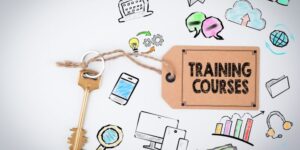Islamic Education has always been the cornerstone of society, shaping individuals and communities, and driving progress and innovation. Noorani Qaida, a fundamental learning tool in Islamic education, holds a unique place in the hearts and minds of millions around the world. However, as we navigate the complexities of the modern age, it is imperative to revitalize Islamic education, including the teaching and utilization of Noorani Qaida, to nurture a love for learning and empower future generations.
The landscape of education has undergone significant transformations in recent years. With the advent of technology and the rise of the digital age, traditional methods of imparting knowledge have been challenged. The ubiquity of smartphones, tablets, and the internet has revolutionized the way information is accessed, disseminated, and consumed. In this rapidly changing world, Islamic education must adapt to remain relevant and effective.
One of the primary goals of revitalizing Islamic education is to foster a love for learning among students. Education should be a journey of exploration, curiosity, and intellectual growth. It should inspire students to ask questions, seek answers, and develop critical thinking skills. To achieve this, Islamic educational institutions need to move away from rote memorization and embrace interactive and participatory teaching methods. Ayat e Karima, a sacred verse from the Quran, can serve as a powerful guiding principle in this endeavor, reminding educators and students alike of the divine wisdom and spiritual significance embedded in their educational pursuits.
Incorporating modern pedagogical approaches, such as project-based learning, collaborative group work, and experiential learning, can make Islamic education more engaging and meaningful for students. By creating an environment that encourages exploration and hands-on experiences, students can develop a deeper understanding of Islamic principles and values. This approach also helps them connect their faith to real-world situations, enabling them to become proactive members of society.
Furthermore, the integration of technology in Islamic education can enhance the learning experience and capture the attention of tech-savvy students. Educational apps, online platforms, and interactive multimedia resources can supplement traditional classroom instruction, providing students with opportunities for self-paced learning and personalized feedback. Digital tools also enable educators to create immersive learning environments, where students can visualize historical events, explore Islamic art, and engage in virtual discussions with scholars from around the world.
While embracing modernity, it is essential to uphold the core principles of Islamic education. The Quran and the teachings of Prophet Muhammad (peace be upon him) should remain at the heart of the curriculum. The objective is not only to impart religious knowledge but also to instill values such as compassion, justice, empathy, and social responsibility. Islamic education should cultivate a strong moral compass in students, empowering them to navigate the complexities of the modern age with integrity and righteousness.
In addition to academic knowledge, Islamic education should focus on character development. Students should be taught the importance of ethical conduct, respect for diversity, and the value of serving humanity. By nurturing a sense of empathy and social consciousness, Islamic education can contribute to the creation of compassionate individuals who actively strive to make a positive difference in the world.
Another crucial aspect of revitalizing Islamic education is the professional development of educators. Teachers play a central role in shaping the learning experience and inspiring students. They need to be equipped with the knowledge, skills, and pedagogical strategies to effectively engage and guide students in their educational journey. Continuous training and professional development programs should be implemented to ensure that educators remain up-to-date with modern teaching methodologies and advancements in their respective fields.
Collaboration between Islamic educational institutions and academia is also vital for revitalization efforts. The wealth of research and expertise available in universities and research centers can be harnessed to improve the quality of Islamic education. Partnerships can be forged to develop innovative curricula, design effective assessment methods, and conduct research on the impact of different teaching approaches. By bridging the gap between theory and practice, Islamic education can adapt to the needs of the modern age while remaining rooted in its timeless principles.
Parental involvement is equally critical in nurturing a love for learning in the modern age. Parents should actively engage with their children’s education, fostering a supportive environment at home. They can encourage reading, facilitate discussions about Islamic values and teachings, and provide opportunities for children to apply their knowledge in practical ways. By working in tandem with educational institutions, parents can reinforce the lessons learned in the classroom and ensure a holistic learning experience for their children.
Revitalizing Islamic education is not a solitary endeavor; it requires the collective efforts of educators, parents, scholars, and policymakers. Governments should recognize the importance of investing in quality Islamic education and allocate resources accordingly. Support for research, infrastructure development, teacher training, and the integration of technology should be prioritized to create an education system that empowers students to thrive in the modern age.
Conclusion
Revitalizing Islamic education is crucial for nurturing a love for learning and empowering future generations. By embracing modern teaching methodologies, integrating technology, focusing on character development, and fostering collaboration, Islamic education can remain relevant and impactful in the modern age. With the collective efforts of stakeholders and a commitment to upholding Islamic principles, we can create an educational system that prepares individuals to navigate the complexities of the world while remaining rooted in their faith and values.






